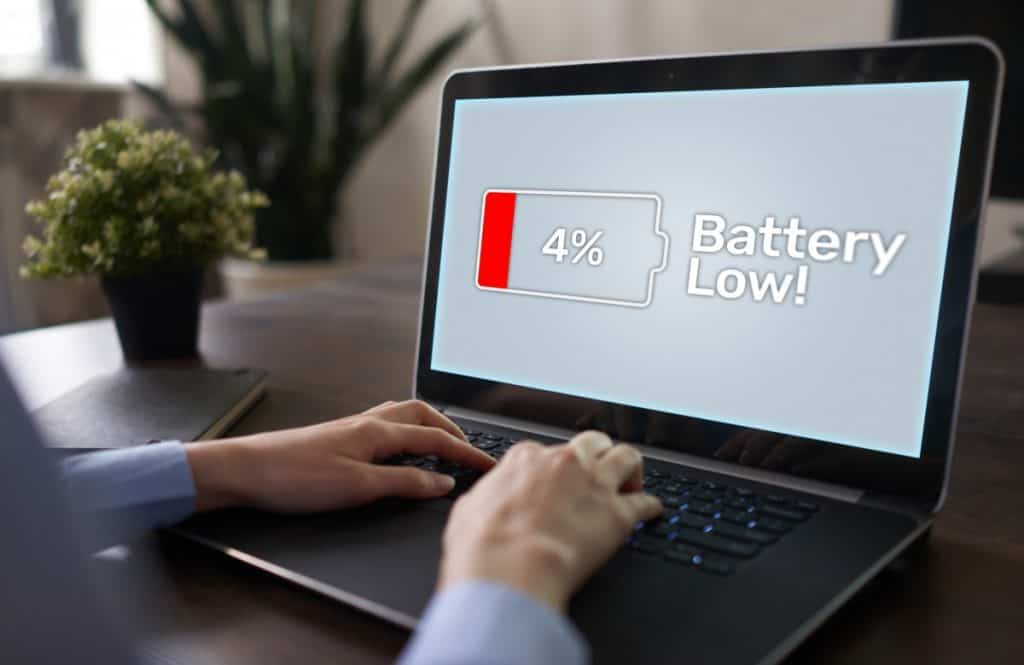Laptops are indispensable devices everyone needs. People use them for a variety of purposes, from education to work. However, many give little importance to laptop batteries. Battery health is crucial. If the battery is healthy, then you can use the laptop for a long time. Many do not know how much to charge the battery, and whether 100% capacity is good for the overall health of both laptop and battery.
You should charge the battery to 100%, as it will not cause damage. Many consider it the most reliable and best way to preserve the battery cycle. Some claim charging the battery to 80% is the best way. The difference is slight, and you will still have a long battery life cycle either way.
There are a lot of discussions about laptop batteries. Of course, it all depends on the user and the laptop. Various factors affect how you charge the battery. Keep reading as you will learn how much to charge the battery and whether you can keep it plugged in when fully charged.

Should I Charge My Laptop To 100%?
Charging your laptop to 100% is one of the simplest and reliable ways to preserve its battery’s life. In that way, you get the most out of its cycle life. When your laptop has a full battery, and you use it plugged in, it will neither charge nor discharge your battery, which means you do not use any of its life cycles, and that is a good thing.
Laptop batteries are smart, and they have a BMS or battery management system that protects your battery from being overcharged, unbalanced, and short-circuited. When the battery is full, the system stops charging the cells.
It is safe to keep the battery fully charged. The battery should be between 80% and 100% for storage. However, never store your battery or device when it is empty because it can permanently damage the battery.
Also, it will not increase the laptop’s temperature. It even cools the laptop. When you connect it to a charger, the laptop works directly with the D.C. supply from the adapter, without the use of a battery. As a result, the battery will generate no heat.
However, although you charge your laptop to 100% and it does not cause damage, many recommend charging your battery to 80%. There is no correct answer. Many people claim that each of these ways helped them increase the lifespan of the battery.
It is a fantastic idea to discharge the battery completely several times a year. You need to charge the battery 100% every 1-3 months, then maximally discharge it until the laptop shuts down, and then recharge it to the maximum again. Once the battery reaches 100% or you discharge it completely, leave your device in that state for another hour or two.
How Long Should I Charge My Laptop Battery?
How long it takes for your laptop battery to charge depends on many things such as the type of battery, the type of charger, and whether a laptop has Fast Charge technology. Batteries are different, and some of them can hold greater voltage, and they take longer to charge. It is an excellent thing because batteries with larger voltage keep your laptop powered for many hours.
Another factor that influences battery charging speed is the type of connector on your laptop charger. People usually use an A/C adapter to charge their laptops. However, there are other types as well. USB-C is another type of charger that transfers significant power and charges the laptop faster. It can charge a battery in record time. Of course, you need a laptop with a USB-C port to charge it this way.
If you have purchased a new laptop, charge it for 24 hours. It helps the laptop’s life expectancy. After the initial charge, charge the battery until it reaches its capacity. It may take several hours. As I mentioned before, it depends on many factors, and charging time varies between 1.5 – 2.5 hours.
Also, it can take longer for your laptop to charge if you use it while it is charging. In that way, you are using some of the power. It can lengthen the time of charging. I will talk more about this in the next section.

Can I Keep a Laptop Plugged In When It Is Fully Charged?
In the past, it was a bad idea and even dangerous to leave your laptop plugged into an external power source all the time. Luckily, new laptops use either lithium-polymer or lithium-ion batteries that will charge until they reach maximum capacity. Most people who are constantly on the move with their laptop leave it plugged in now and then.
When you fully charge your laptop, it can stay plugged in with no problems. If the battery is lithium-based, you should not worry because you cannot overcharge this type of battery. However, keep in mind that charging a laptop’s battery to high voltage can decrease its lifespan. Many claims charging the battery to 80% or 90% help its lifespan up to 1000 charges.
When your laptop reaches 100% battery capacity, and you leave it plugged in, the charger will stop charging it. The laptop will run off the power cable. After your battery slightly discharges, the charger will start charging again until it tops the battery off. You cannot cause any danger to the battery by using your laptop plugged in and charging it beyond its capacity.
However, the disadvantage of this is your laptop will power down after a short amount of time, and it will have less battery life if you do not charge it to 100%. If you are constantly using your laptop away from a charging station, this could be a serious problem for you.
You can avoid this problem by using a laptop power bank. It is an external battery you plug into your laptop to recharge its battery. You can do it without even plugging it into an outlet. When you are using your laptop and need to recharge its battery, simply plug in a power bank and charge it to about 80% capacity.

